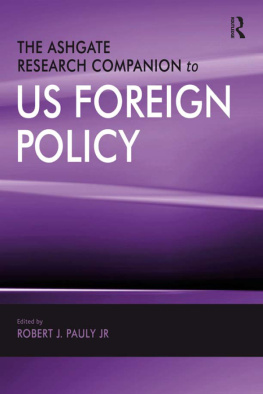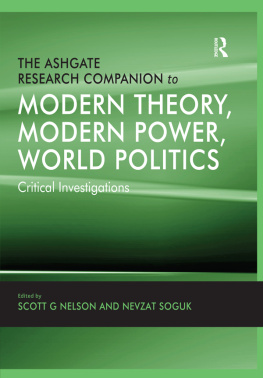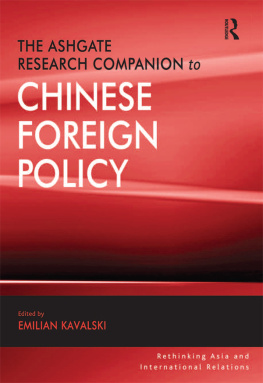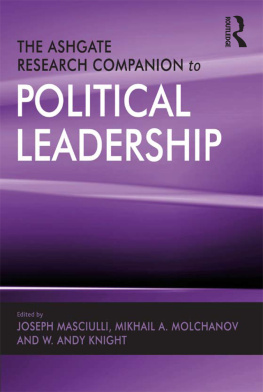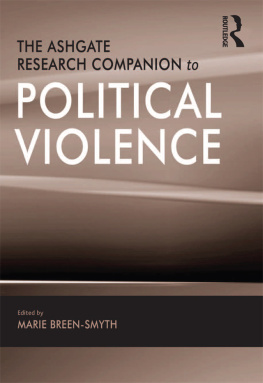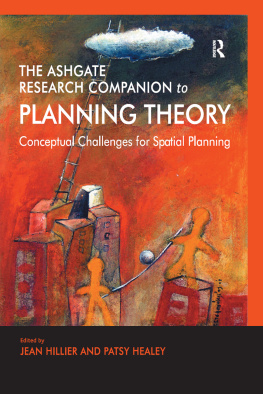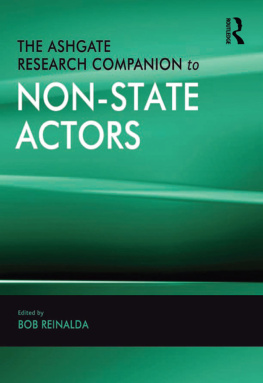THE ASHGATE RESEARCH COMPANION TO MULTICULTURALISM
The Ashgate Research Companions are designed to offer scholars and graduate students a comprehensive and authoritative state-of-the-art review of current research in a particular area. The companions editors bring together a team of respected and experienced experts to write chapters on the key issues in their speciality, providing a comprehensive reference to the field.
The Ashgate Research Companion to Multiculturalism
Edited by
DUNCAN IVISON
University of Sydney, Australia
First published 2010 by Ashgate Publishing
Published 2016 by Routledge
2 Park Square, Milton Park, Abingdon, Oxon OX14 4RN
711 Third Avenue, New York, NY 10017, USA
Routledge is an imprint of the Taylor & Francis Group, an informa business
Copyright 2010 Duncan Ivison
Duncan Ivison has asserted his right under the Copyright, Designs and Patents Act, 1988, to be identified as the editor of this work.
All rights reserved. No part of this book may be reprinted or reproduced or utilised in any form or by any electronic, mechanical, or other means, now known or hereafter invented, including photocopying and recording, or in any information storage or retrieval system, without permission in writing from the publishers.
Notice:
Product or corporate names may be trademarks or registered trademarks, and are used only for identification and explanation without intent to infringe.
British Library Cataloguing in Publication Data
The Ashgate research companion to multiculturalism.
1. Multiculturalism.
I. Research companion to multiculturalism II. Ivison, Duncan.
305.8-dc22
Library of Congress Cataloging-in-Publication Data
The Ashgate research companion to multiculturalism / [edited by] Duncan Ivison.
p. cm.
Includes bibliographical references and index.
ISBN 978-0-7546-7136-7 (hardback) 1. Multiculturalism. I. Ivison, Duncan, 1965-
HM1271.A747 2010
305.8--dc22
2010007123
ISBN 9780754671367 (hbk)
ISBN 9781315613314 (ebk)
Contents
Duncan Ivison
Geoffrey Brahm Levey
Jocelyn Maclure
Paul Patton
Thomas M. Besch
Barbara Arneil and Fiona MacDonald
Avigail Eisenberg
James Bohman
Nicholas H. Smith
Monica Mookherjee
Michael Humphrey
Charles Jones
Ghassan Hage
Rita Kaur Dhamoon
Jeffrey Riegel
List of Contributors
Barbara Arneil, Department of Political Science, University of British Columbia, Canada.
Thomas M. Besch, Department of Philosophy, University of Sydney, Australia.
James Bohman, Department of Philosophy, Saint Louis University, USA.
Rita Kaur Dhamoon, Department of Political Science, University of the Fraser Valley, Canada.
Avigail Eisenberg, Department of Political Science, University of Victoria, Canada.
Ghassan Hage, Department of Anthropology, University of Melbourne, Australia.
Michael Humphrey, Department of Sociology and Social Policy, University of Sydney, Australia.
Duncan Ivison, Department of Philosophy, University of Sydney, Australia.
Charles Jones, Department of Political Science, University of Western Ontario, Canada.
Geoffrey Brahm Levey, Department of Politics and International Relations, University of New South Wales, Australia.
Fiona MacDonald, Department of Political Studies, University of Manitoba, Canada.
Jocelyn Maclure, Department of Philosophy, Universit Laval, Canada.
Monica Mookherjee, School of Politics, International Relations and Philosophy, Keele University, UK.
Paul Patton, Department of Philosophy, University of New South Wales, Australia.
Jeffrey Riegel, School of Languages and Cultures, University of Sydney, Australia.
Nicholas H. Smith, Department of Philosophy, Macquarie University, Australia.
1
Introduction:
Multiculturalism as a Public Ideal
Duncan Ivison
Introduction
Multiculturalism is an awkward term. Some suggest it merely restates the very problem it is meant to resolve; others that it should be abandoned altogether. But what would it mean to abandon multiculturalism? And not just the phrase or concept, but the attitudes, beliefs and practices associated with it?
However inelegant a word, the concept of multiculturalism now occupies a central place in the public culture of Western liberal democracies and increasingly in global political discourse too. Some of the fundamental ideas associated with multiculturalism underlie a remarkable shift in approaches to minority rights that have occurred over the past 25 years in domestic and international law. Multiculturalism has also become a central topos in modern social and political theory, as well in the contemporary social sciences more generally. There is no question that there has been a fundamental shift in our thinking about the nature of ethnic and cultural diversity.
One thing the multicultural turn in political theory has done is put cultural and ethnic diversity at the centre of contemporary debates. It broke up the explicit (and often implicit) monoculturalism at the heart of many of the dominant ways of conceiving of modern statehood and citizenship. It brought to the fore various occluded aspects of the way nation-building often presumed a cultural uniformity that legitimated harmful modes of assimilation, or was indifferent to the aspirations of minorities. Even more recently, multicultural ideas have spread to debates over the nature of global justice and the search for global norms of human rights and redistributive justice.
This volume seeks to bring together some of the leading and emergent scholars working on multiculturalism from a range of different disciplines and approaches including philosophy, political science, sociology and anthropology. One general background against which the book is set is the rise of multiculturalism as an increasingly global political ideal, and yet also a sense of unease about many of its consequences. The book is divided into three thematic sections: foundations, challenges and alternatives. Each author was asked to provide a distinctive angle and response to the question they were posing, but also to provide enough background so that someone coming to these issues for the first time would be able to situate the argument in a broader context. What I want to do in this chapter is introduce some of the main themes of the book. But I also want to identify some of the key ideas and questions at the heart of multiculturalism understood as distinctively public ideal.
Three Logics of Multiculturalism
First of all, what do we mean by multiculturalism? Even here there is argument, as we might expect. But for the general purposes of this book, multiculturalism refers to a broad array of theories, attitudes, beliefs, norms, practices and policies that seek to provide public recognition of and support for accommodation of non-dominant ethnocultural groups. The nature of these non-dominant groups will vary: some may be immigrant minorities (including refugees), others will be historically settled minorities such as national minorities (e.g. the Quebecois) or indigenous peoples. These differences are important, as we shall see. However, what is distinctive about multicultural approaches to social and cultural diversity and especially



